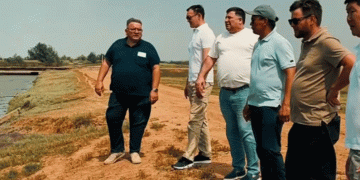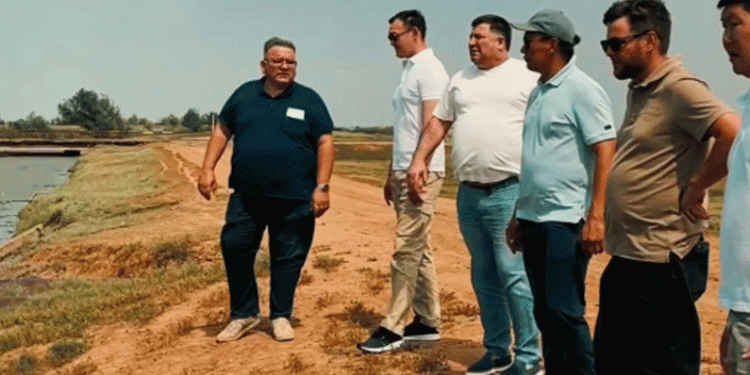In a strategic move to combat water scarcity and boost agricultural productivity, Kalmykia has initiated a 97 million ruble ($1.1 million) reconstruction of its critical Sarpinskaya irrigation network. The project, personally supervised by Agriculture Minister Timur Gavayev under Republic Head Batu Khasikov’s directive, aims to address decades of infrastructure neglect that currently causes 25% water losses across the system.
Key Components of the Renovation (2025-2026)
- Replacement of 2 pump stations serving the rice-growing and fodder production zones
- Upgraded electrical equipment to reduce energy consumption by an estimated 15-20%
- Anti-flood measures along a 29 km critical section of canals
- Modernized water control gates to improve distribution accuracy
Why This Matters for Kalmykia’s Agriculture
| Current Challenges | Expected Improvements |
|---|---|
| 25% water loss due to leaks | 90%+ system efficiency |
| Limited rice cultivation (5,000 ha) | Potential 30-40% expansion |
| Seasonal fodder shortages | Year-round pasture irrigation |
The region’s agricultural ministry emphasizes this aligns with Russia’s national food security strategy, particularly for water-intensive crops like rice in drought-prone areas.
Technical and Economic Impacts
- Water Savings: The repaired system could conserve 2.7 million m³ annually – enough to irrigate 1,000 additional hectares
- Energy Efficiency: New pumps may cut power use by 1.5 MW/year
- Crop Diversification: Enables testing of water-saving rice varieties like those successfully grown in neighboring Astrakhan
Local Farmer Perspectives
While officials tout the project’s benefits, some agricultural workers remain cautious:
- “We’ve heard promises before. Will the water actually reach our fields?” – Local rice farmer
- “New pumps mean nothing if canals remain unlined. Seepage losses must be addressed.” – Agricultural engineer
Water as the Foundation for Growth
This irrigation overhaul represents more than infrastructure repair – it’s a strategic investment in Kalmykia’s agricultural future. If successfully implemented, the project could:
✅ Stabilize water supply for 150+ farms
✅ Increase rice yields by 15-20% through precise irrigation
✅ Reduce reliance on imported fodder by improving pasture irrigation
As Minister Gavayev noted, “This is about making our farmers climate-resilient.” The coming years will test whether modernized water management can turn Kalmykia’s arid steppes into productive agricultural hubs.































